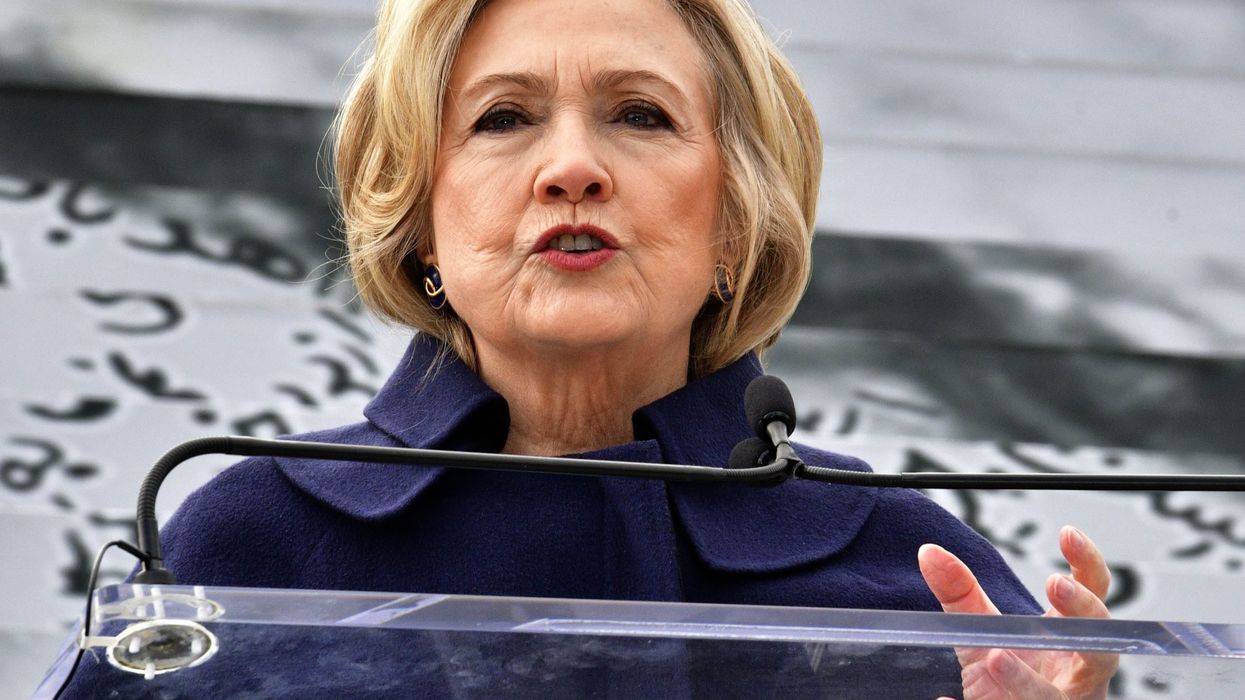Former US secretary of state Hillary Clinton on Monday announced a Global Climate Resilience Fund of 50 million dollars for women to fight climate change in association with the Self Employed Women’s Association (SEWA) founded by late activist Ela Bhatt.
The fund will empower women and communities to fight climate change and help provide new livelihood resources and education, she said.
Clinton visited salt pan workers in the Little Rann of Kutch near Kuda village in Gujarat’s Surendranagar district and learnt from them the process of salt production and hardships faced by them.
“Today, Clinton Global Initiative with American Indian foundation, SEWA and other organisations, I announce 50 million dollar Global Climate Resilience Fund for women,” she said addressing the salt pan workers.
“I have had the privilege of working with Elaben (Bhatt) and SEWA for nearly 30 years. But we are thinking about next 50 years,” she said.
“Whether you’re in construction, waste recycling, plastic, or a farmer, your challenge to make an income working through heat will be the next big problem,” said Clinton, who is on a two-day visit to Gujarat from Sunday.
She had attended a programme in Ahmedabad on Sunday to mark 50 years of SEWA as a trade union and paid homage to its founder and renowned social activist Ela Bhatt, who passed away in November last year.
During the event, she had said heat caused by climate change poses an additional challenge to women workers in informal sectors and the Global Climate Resilience Fund will help tackle this challenge.
On Monday, Clinton said she started talking to Reemaben Nanavati, SEWA’s director, regarding the new struggle that heat is presenting, because every job that members of the women’s trade union represent “will be affected by heat.” Nanavati suggested that SEWA can be the nodal agency for such a first-of-its-kind experiment.
“We have brought together a group of concerned people to help with this challenge, and a number of these groups are represented here to help start the Global Climate Resilience Fund in partnership with SEWA — the first fund like this in the world,” Clinton said.
She said working with SEWA will be the Clinton Global Initiative, Rockefeller Foundation Resilience Center, Algorand Foundation, Council for Inclusive Capitalism, and the American India Foundation.
“These will be some of the partners with SEWA to begin to address this very significant challenge,” she said.
Clinton said anyone who has to go outside for work, like police officers, fire-fighters, people in every walk of life going in and out to work in heat “are going to need the kind of help and support that this project pioneered by SEWA will provide.” Rockefeller Foundation Director Kathy Bunghman, who was also present on the occasion, announced an “Extreme Heat Insurance” for members of SEWA.
“You will not have to pay insurance premiums. During extreme heat conditions when you cannot work, this insurance will provide you regular income,” she said.
On the occasion, women working in different fields associated with SEWA narrated how their lives have changed due to extreme climate conditions like heat, floods and drought.
(PTI)




